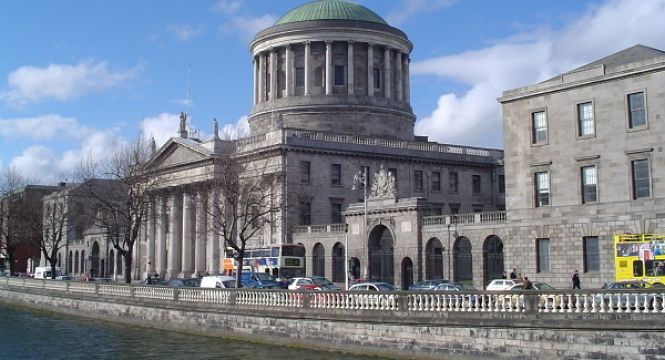An Environmental Protection group has secured a High Court order temporarily halting works on a flood relief scheme in Co Roscommon.
On Friday Mr Justice Garett Simons granted the Friends of the Irish Environment (FIE) an order preventing Roscommon Co Council from conducting works at Lough Funshinagh, which is also known as Ireland's disappearing lake, located approximately 12km north of Athlone.
The stay, which is to remain in place until the matter returns before the court later this month, forms part of FIE's judicial review challenge against Roscommon County Council decision last May to authorise the works at Lough Funshinagh.
Water pumped
The proposed works at the centre of the action include the construction and laying of a 2.6km pipe that would see water from Lough Funshinagh, which is a Special Area of Conservation, pumped into the larger Lough Ree.
The works were commenced because the area has been subject to flooding in recent years.
However, FIE says that the works have the potential to lead to serious environmental damage and priority habitat loss.
FIA claims that the works are not lawful, and are in breach of European law, on grounds including that the project was not subjected to the required Environmental screening and assessment processes.
In its action FIE represented by Jon Kenny Bl, instructed by FP Logue solicitors seeks various orders and declarations including one quashing the council's decision to authorise the works.
They also seek declarations including that the proposed works should be authorised by the 2000 Planning and Development, and are subject to consent procedures under that Act.
Ex-parte action
Mr Justice Simons said that he was satisfied on an ex-parte basis where only one side was represented in court to grant FIE permission to bring its action against the council, Ireland and the Attorney General.
The matter was adjourned to August 25th next.
In his submissions to the court Mr Kenny said that in advance of the works being carried out the Co Council was advised by Civil engineers it had retained that the works would have to seek planning permission under the 2000 Planning and Development Act.
As part of that process the council would have been obliged to conduct an extensive environmental assessment of the proposed flood relief works.
Protected areas
Both Lough Ree and Lough Funshinagh are specially designated protected areas, counsel said.
However, counsel said that the local authority rather than seeking development consent under the 200 Act opted to commenced the works under the 1949 Local Authorities Act.
Counsel said it is FIE's case that the 1949 Act does not allow the council carry out the proposed works in question, and can only be applied in limited or emergency situation.
Counsel said that as a result no assessment or Environmental impact assessments were carried out before the works at Lough Funshinagh commenced.

It is FIE's case that the proposed works are likely to have a significant effect on the environment and at the very least should have been screed for the purposes of complying the EU Directive on Environmental Impact Assessments.
An expert report compiled by FIE raised concerns about the effects the development may have on both lakes.
There were further concerns about the impact the pipe will have on the water quality at Lough Funshinagh, on local wildlife including the Whooper Swan, and on local ecology.
It is FIE case that the works are being carried out in breach of EU law and domestic planning laws, and should be halted, counsel added.







